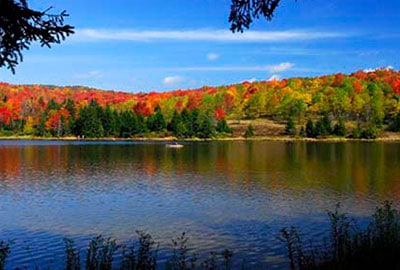CHARLESTON, W.Va. – West Virginia’s colleges and universities were among the first to take drastic measures to protect our communities in response to COVID-19. The eight non-profit institutions that make up the West Virginia Independent Colleges and Universities (WVICU) were no different – ending in-seat instruction, sending students home, adopting virtual learning platforms, and transitioning most employees to remote work.
Ben Beakes, executive director of the WVICU said, “The decisions to end in-seat instruction and close campuses were made from an abundance of caution for the safety and well-being of our students, employees, and our commitment to the communities we serve.”
As the fall semester approaches, private colleges will look to those same guiding principles in their planning and decision-making approach.
“We will have students back to our campuses for the fall semester. This is not a decision that has been made overnight,” Beakes said. “In fact, since the beginning of the COVID-19 outbreak, we have been studying and planning for all possible scenarios for the fall semester. Our reopening plans align with the types of institutions we are and the vital roles that we play.”
There are several factors that played into planning and decision making:
First, not all places are the same. The private institutions are smaller campuses, and most are in rural and contained communities. The logistics for bringing back thousands of students to campus are very different than welcoming back a few hundred residential students. “Our planning is built on the advantage of having those flexibilities and simpler logistics to manage the ebb and flow of students on and off campus,” Beakes said.
Second, WVICU institutions believe their plans give them more control of COVID-19 threats. How? All institutions have altered academic calendars, so that in-seat instruction ends before Thanksgiving Break. Many have cancelled long weekend breaks and are encouraging students, once on campus, to remain. Each school is making available masks and other appropriate personal protection equipment and adhering to social distancing guidelines in public areas and classrooms. Further, institutions have prudent restrictions for guests and visitors like a no visitor policy in residence halls for some.
Third, planning was not conducted in a vacuum. “Each private institution has collaborated with their local health departments and healthcare professionals in developing their plans. They have also followed closely the WV Higher Education Policy Commission planning framework,” Beakes said. Each campus location is different, so plans are specific to the institution’s community. “We have addressed testing, health monitoring, isolation of COVID-19 positive individuals, communications, and much more.”
Finally, communities have played a vital role in reopening considerations. All WVICU institutions are economic drivers for their community. Many are the largest employer, largest producer of the workforce, the families that make up the community, and the heartbeat of the town. “Feedback provided to me from many of the presidents is that while discussing their institution’s plans, town leaders understand the risk of students potentially bringing COVID-19 to the town – but the risks of losing the economic vitality and social fabric of the town are far greater,” Beakes said.
West Virginia’s private institutions have a dual responsibility: to serve their students and serve their community. “Our students want to be back. And our communities want them back in the safest way possible. The challenge we have is not whether COVID-19 will come to our campus, it is whether we have the appropriate plans in place to mitigate its spread,” Beakes said. Since mid-March, the private colleges and universities have focused their energies on developing those plans. “We believe the independent colleges are prepared to welcome students to their campuses in August, with no greater risk than having them return at a later date.”
WVICU recognized the vital role its students will play this fall. “This is their time to shine, to pick up the mantra of loving one’s neighbor, being mindful of our community, and doing the best we can to minimize COVID-19,” said Beakes. A hallmark of private universities is the strong sense of community – that all of its members care for and look out for each other. “We recognize the changing nature of COVID-19 and will remain vigilant as we move forward. The semester will start as it has for decades – but our mission and purpose this year has never been greater”
The West Virginia Independent Colleges and Universities is made up of: Alderson Broaddus University, Appalachian Bible College, Bethany College, Davis & Elkins College, Ohio Valley University, University of Charleston, West Virginia Wesleyan College, and Wheeling University.

